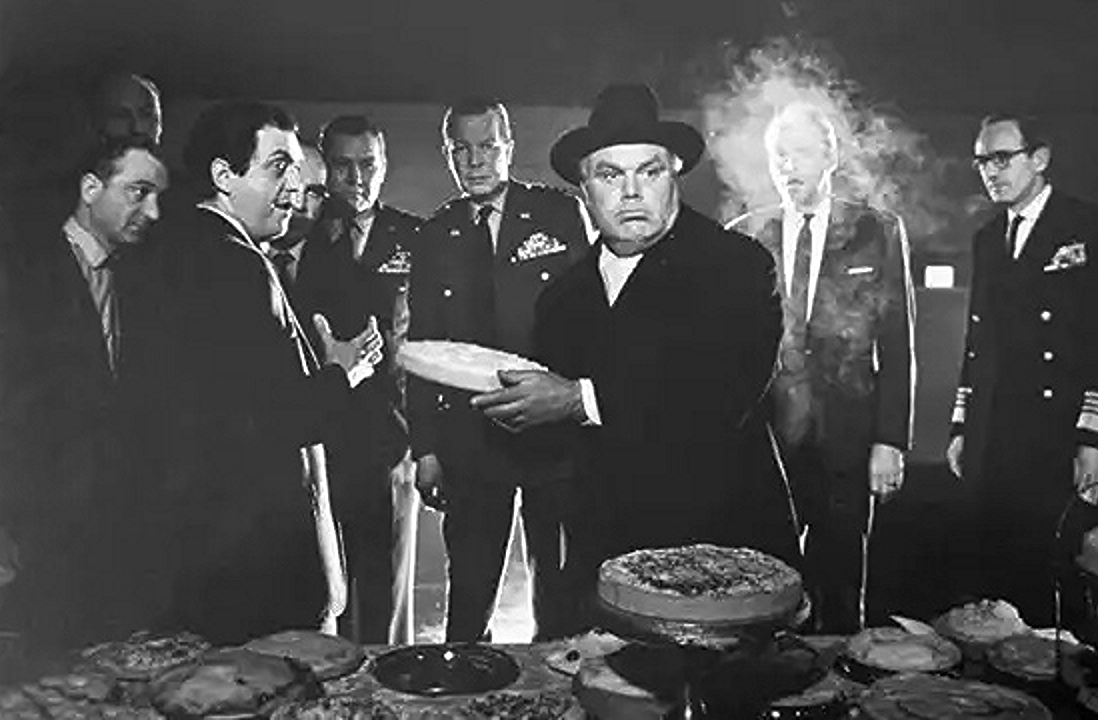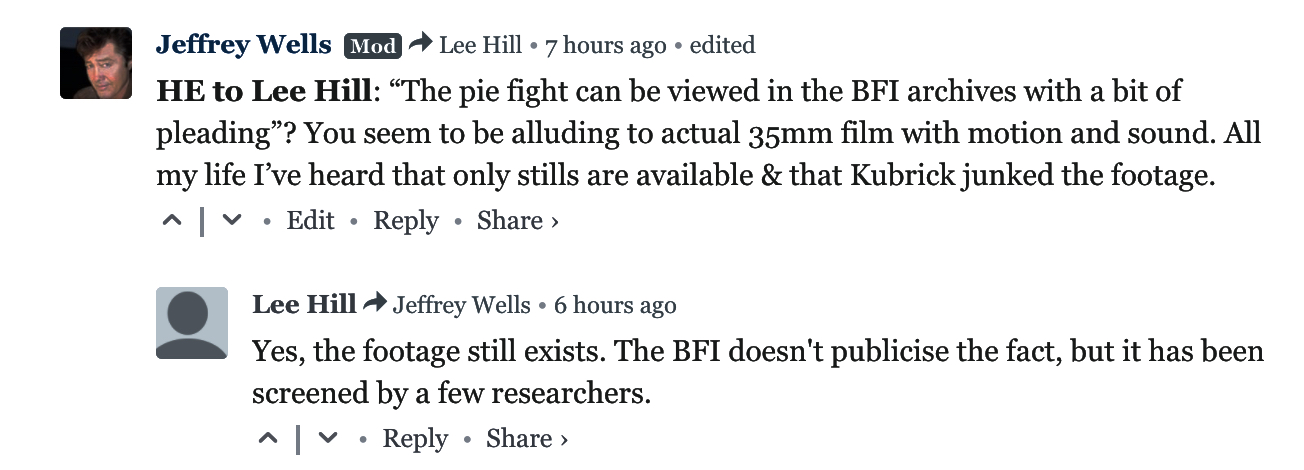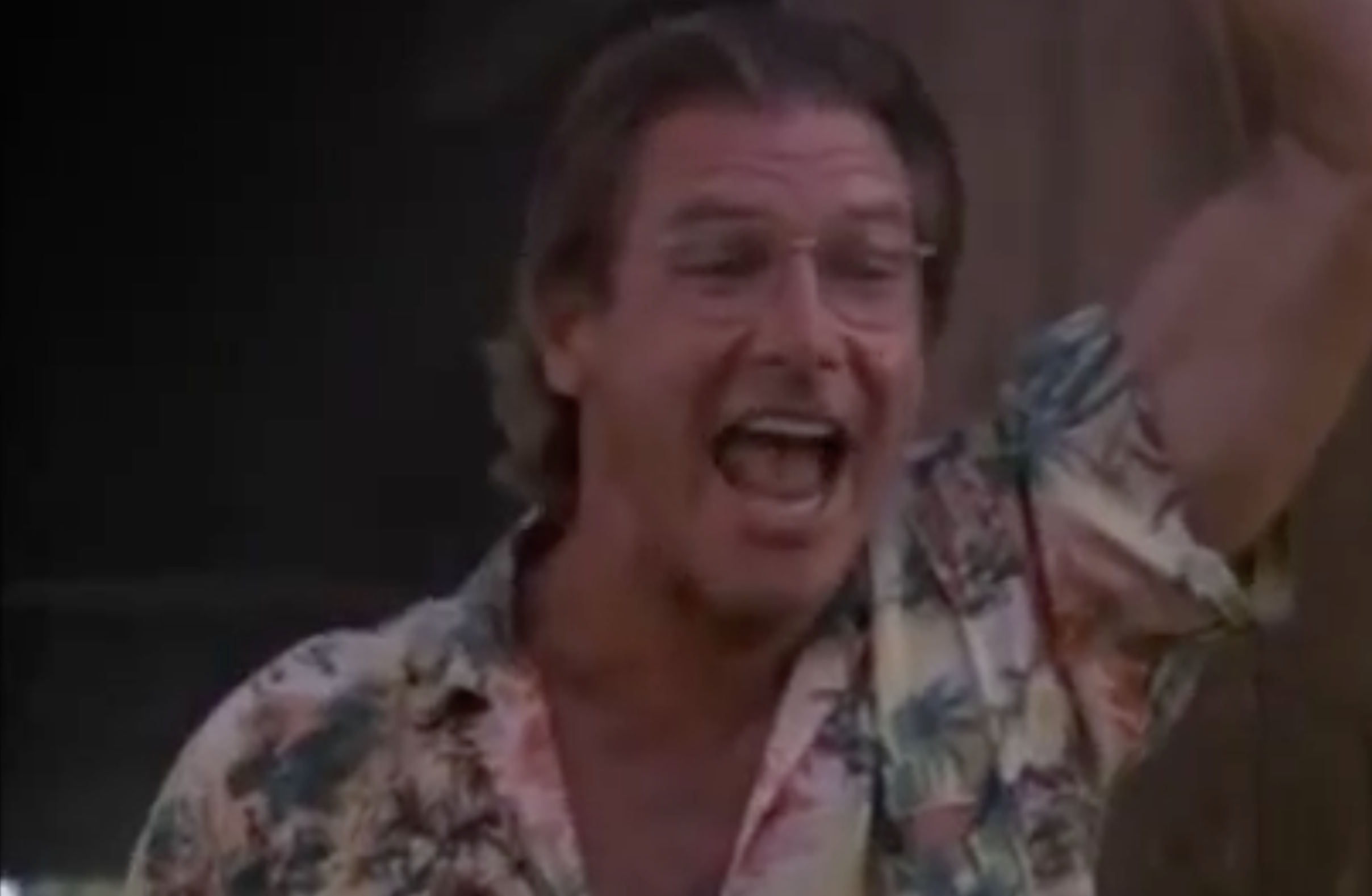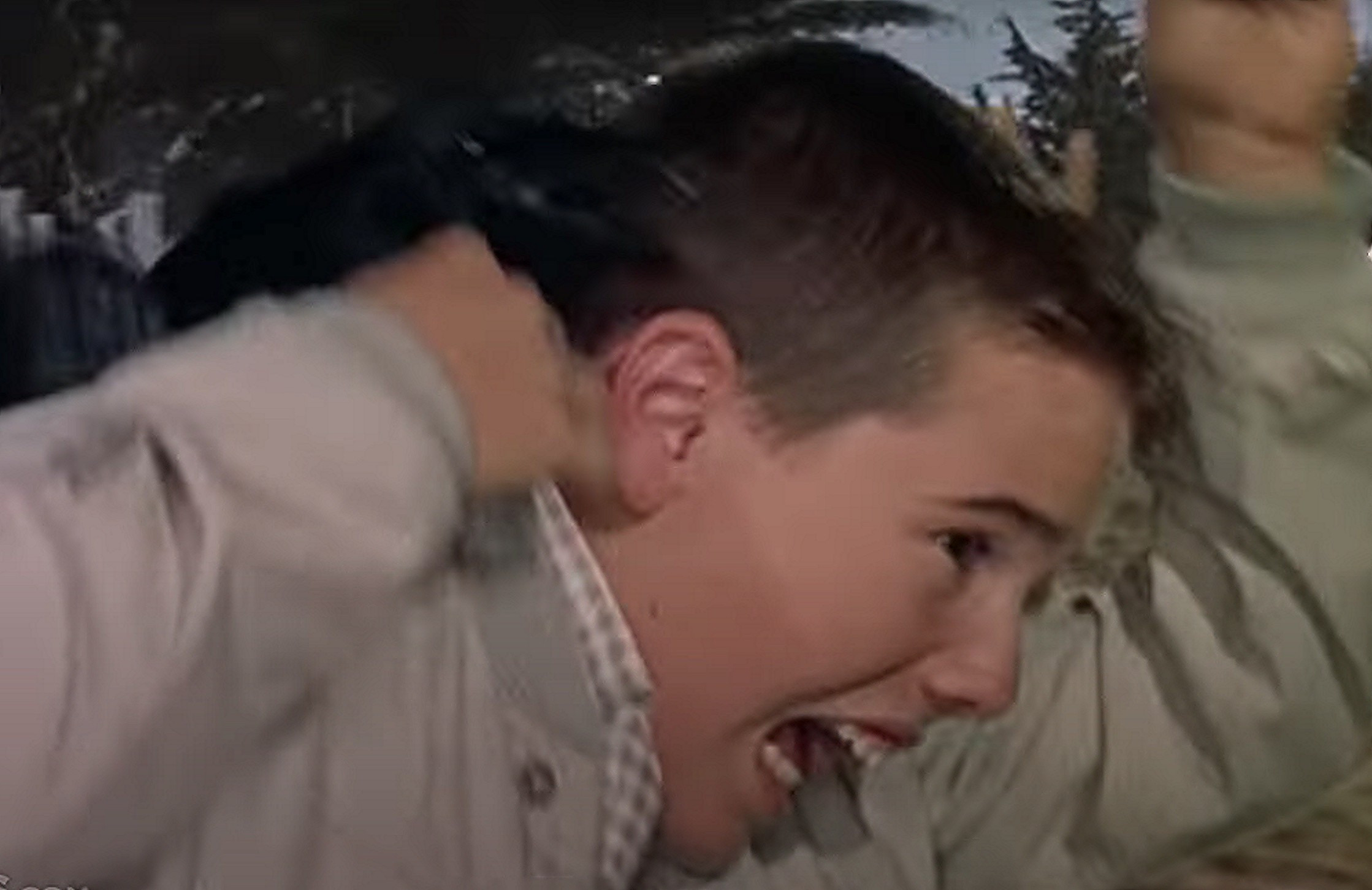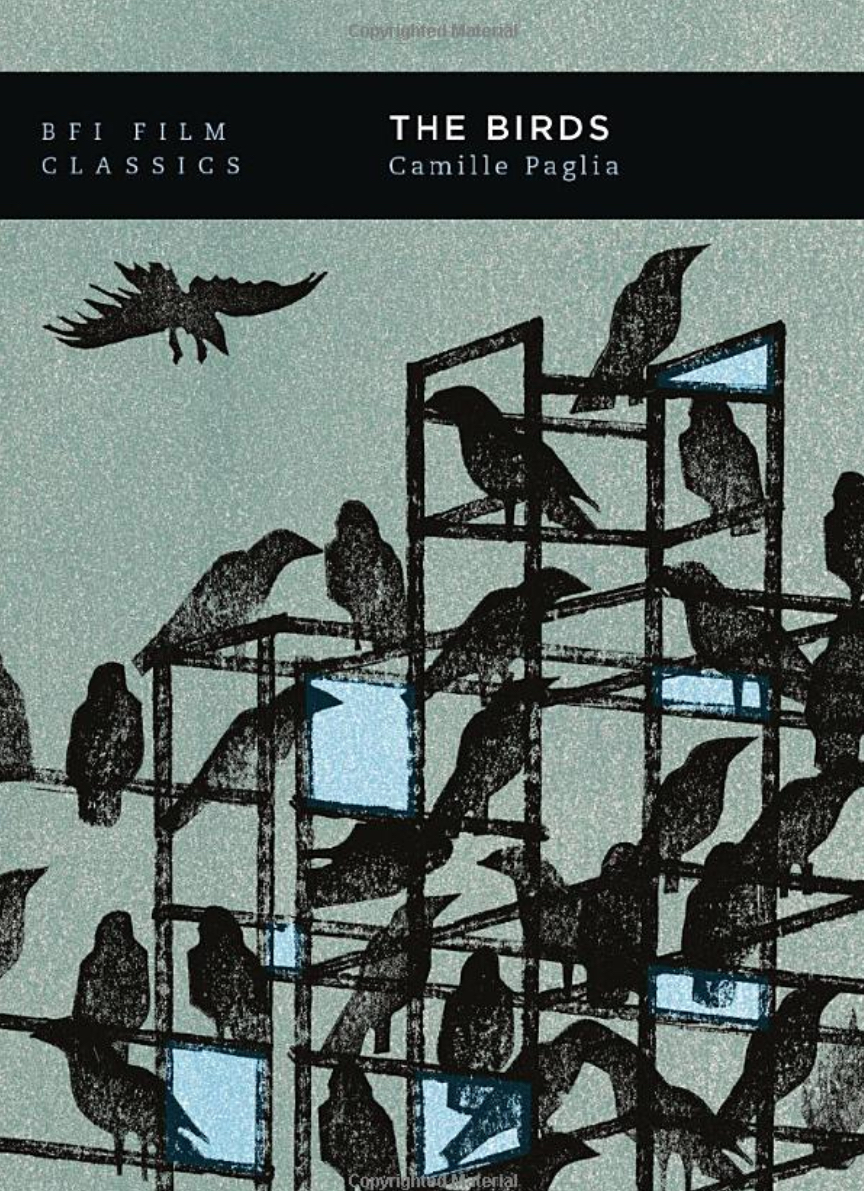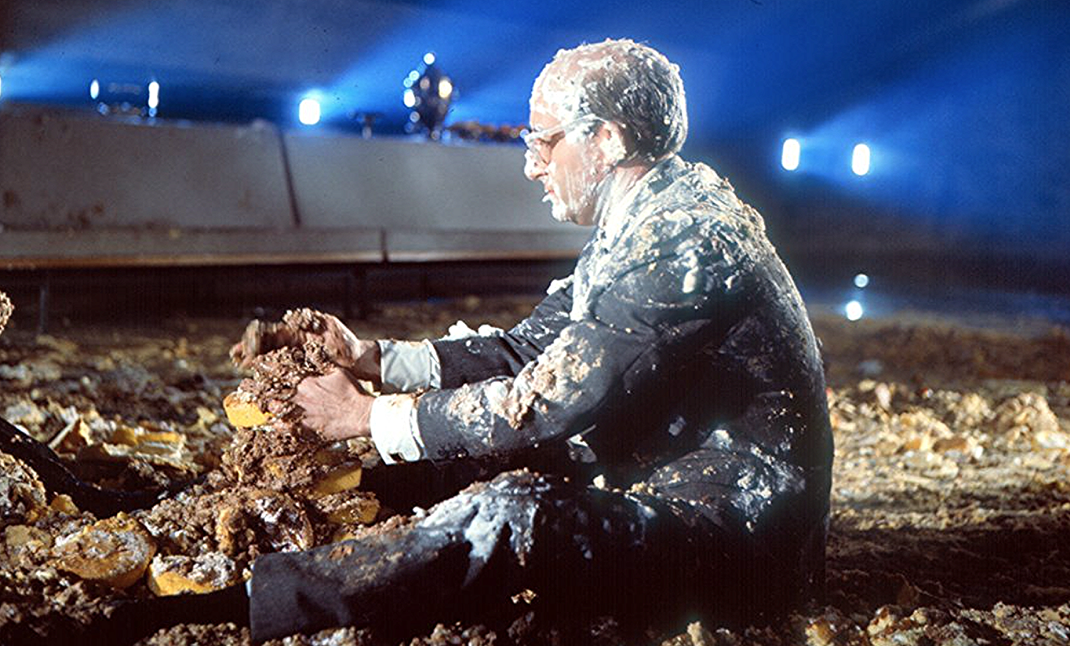Certain George C. Scott recollections about the never-seen Dr. Strangelove pie-fight sequence were recently posted on Facebook by director-writer Patrick Reade Johnson. Johnson directed Scott in Angus (’95), and presumably got the following from him during shooting.
I’d never read Scott’s story until this morning, and I have to say two things. One, I don’t believe that Strangelove director Stanley Kubrick would have behaved in the petty, wimpy, small-minded way that Scott describes. And two, I’ve found a photo of Kubrick directing Scott during the pie-fight sequence so take the following with a grain:
Johnson: “Scott told me a couple great stories from the Strangelove shoot. One contradicted a popular myth about the film — that the removal of the pie-fight scene was due to concerns over a line in which Scott’s General Buck Turgidson (or someone else in the scene) said, ‘Gentlemen, our beloved president has been struck down in the prime of his life!’ It was deemed insensitive in the wake of JFK’s assassination.
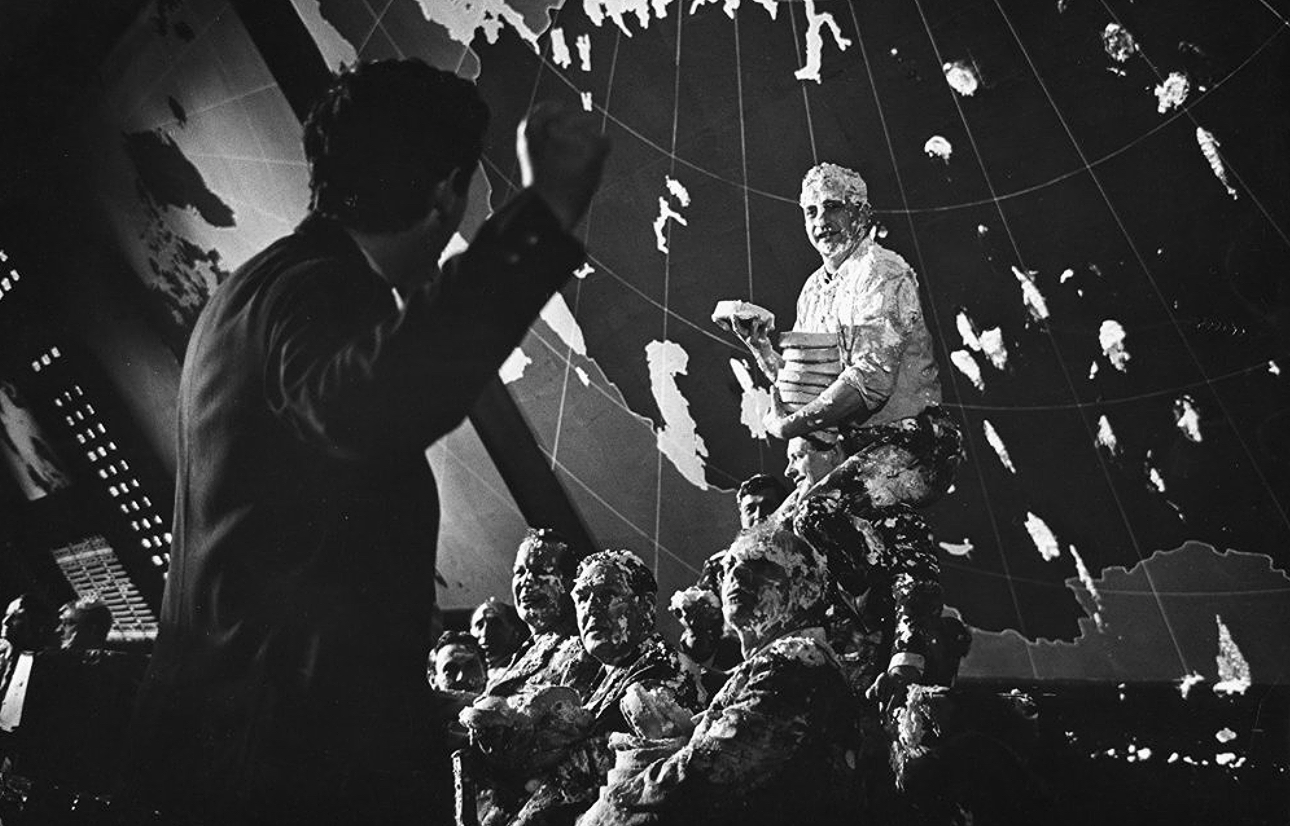
Obviously the rear angle means we can’t be 100% certain this is a shadowed Stanley Kubrick directing the pie-fight sequence, but it sure looks like him.
“Another theory holds that Kubrick just felt the scene didn’t work.
“’Bullshit!’, roared George, when asked about it. ‘The scene was terrific! Which is WHY Stanley CUT it!” George’s eyes narrowed, a big, toothy grin spreading across his face… “Because the sonofabitch didn’t DIRECT it! THE FIRST A.D. DIRECTED IT!”
“I asked George why Stanley would entrust his first A.D. (possibly Eric Rattray) with directing a high comedy scene, featuring most of his leading cast. And why the venerable actors would even agree to that arrangement.
Scott: “We DIDN’T agree to it! But on the day when we all showed up to shoot the fucking scene, including the guy with 500 goddamn pies, Stanley was nowhere to be found! We sat around on our asses for an hour or so, until the 1st A.D. walked in and said Stanley had a terrible cold…ALL OF A SUDDEN…and that he wouldn’t be able to work today.
“But then he added that Stanley had also said that if we didn’t forge on without him, the scene, which everyone LOVED, would NEVER get DONE!”.
Johnson: “So, you just went ahead and…“
Scott: “And SHOT a goddamn SCENE for a fucking STANLEY GODDAMN KUBRICK FILM that was NOT DIRECTED BY STANLEY GODDAMN KUBRICK! Which is WHY the fucking scene never made into the fucking MOVIE!”
Johnson: “But what about JFK and being sensi—“
Scott: “OH, what a load of CRAP! Stanley couldn’t have cared less about that! If ANYTHING, he PROBABLY HATED not having something so GODDAMN IRREVERENT in his FILM! He just didn’t hate it as much as he hated his First A.D.’s goddamn DIRECTING!”
Read more

